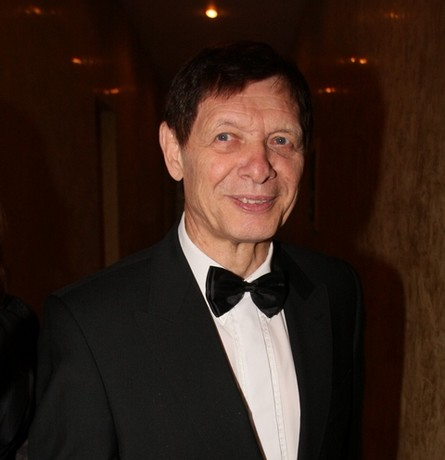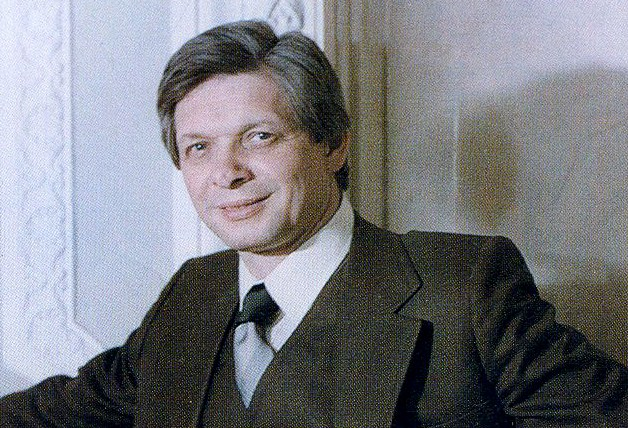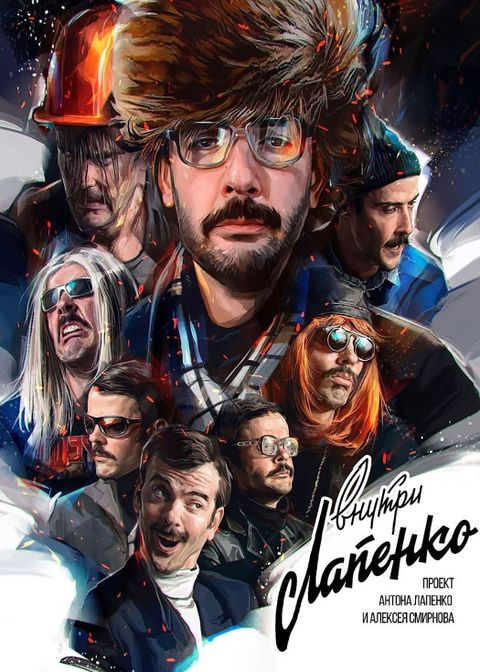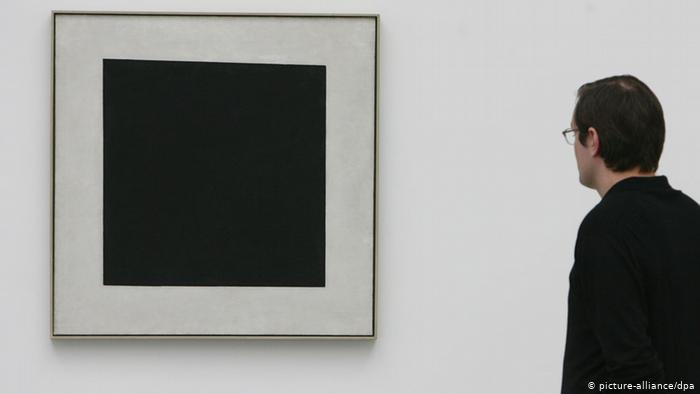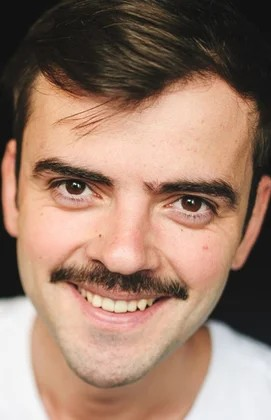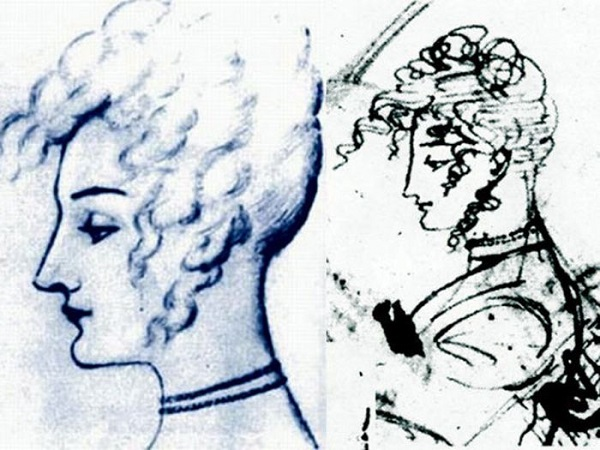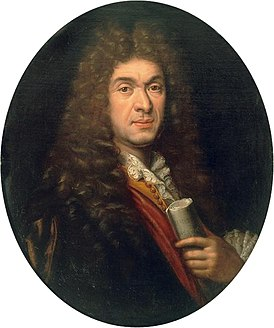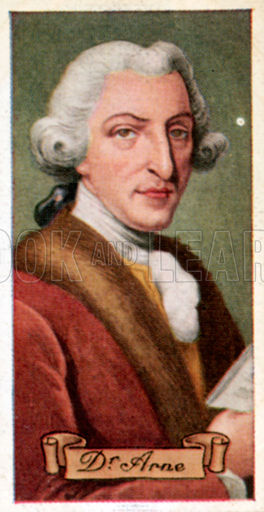-
Postów
1 409 -
Dołączył
-
Ostatnia wizyta
Treść opublikowana przez Andrew Alexandre Owie
-

THIS AND THAT TO I OWO
Andrew Alexandre Owie odpowiedział(a) na Andrew Alexandre Owie utwór w Zabawy
@BPW Thank you for your kind attention. I am happy to be of any assitance, although I just entertain folks, nothing more. It's a leisure, let alone some insurance against any misunderstanding, due to the fact that Polish is not my native language, and, therefore, I may say not what I really meant. Dziękuję za uwagę. Cieszę się, że mogę być pomocny, chociaż po prostu zabawiam ludzi, nic więcej. To jest po prostu czas wolny od pracy, rekreacja, oraz ubezpieczenie na wypadek nieporozumień, ponieważ polski nie jest moim językiem ojczystym i dlatego mogę być zrozumiany niezgodnie z intencjami. @BPW In cases when my humble bilingual humour really fascilitates doing the useful and serious things, well, then my efforts aren't all the more just a waste of time. All the best! W przypadkach, gdy mój skromny dwujęzyczny humor naprawdę robi rzeczy pożyteczne i poważne, cóż, moje wysiłki tym bardziej nie są tylko stratą czasu. Wszystkiego najlepszego! -

LA LA LA LA LA HEY! ŁA ŁA ŁA ŁA ŁA HEJ!
Andrew Alexandre Owie odpowiedział(a) na Andrew Alexandre Owie utwór w Zabawy
-
THIS AND THAT TO I OWO Notes to pass the time Zapiski dla zabicia czasu When you sit idly in front of your smartphone and type all that comes to your mind, it happens that you start writing something that may seem ludicrous. Kiedy siedzisz bezczynnie przed smartfonem i wpisujesz wszystko, co przychodzi ci do głowy, zdarza się, że zaczynasz pisać coś, co może wydawać się absurdalne. WHAT CAN STOP THE THUMBELLINA'S DIARRHEA? CO MOŻE ZATRZYMAĆ BIEGUNEK THUMBELLINY? Tribute to Eugène Ionesco A man comes to a pet store and sees a parrot with strings tied to its paws. He asks the salesperson: "What are those strings for?" -If you pull the left string, the parrot will be speaking English. If the right, French. The man: "What if I'd pull both?" The parrot from its cage: "I'd fall down!" Mężczyzna przychodzi do sklepu zoologicznego i widzi papugę ze sznurkami przywiązanymi do łap. Pyta sprzedawcę: "Po co te sznurki?" -Jeśli pociągniesz za lewy sznurek, papuga będzie mówić po angielsku. Jeśli prawy, po francuski. Mężczyzna: "A co by było, gdyby pociągnął oba?" Papuga z klatki: "Upadłbym!" *** Applying for the Israeli passport. -Were there any Jews in your family? -No, I am the first. Ubieganie się o izraelski paszport. - Czy w Twojej rodzinie byli jacyś Żydzi? -Nie, jestem pierwszy. *** -To where are they dragging a drunken homeless twat wearing octopus costume? Answer: To the Eurovision Song Contest. -Dokąd oni ciągną pijaną bezdomną cipę w kostiumie ośmiornicy? Odpowiedź: Na Konkurs Piosenki Eurowizji. *** -Why is the pop singer dipping his balls into honey, while the pop diva is breaking bagels with her bum on the roof of thе skyscraper? Answer: The trendy director is shooting a new music video. -Dlaczego pop piosenkarz zanurza swoje jaja w miodzie, podczas gdy pop diva łamie bajgle dupej na dachu wieżowca? Odpowiedź: Modny reżyser kręci nowy teledysk. ----------- Rideo quia absurdum! Those jokes are meaningless and ridiculous, their feature is an absurd. Te żarty są bezsensowne, ich "zabawna" cecha to absurd. LAPENKO+ "Inside Lapienko". The Journalist decides to leave the Channel TV9, but having seen the TV channel CEO Richard Sapogov's new secretary Tatiana Vosmiglazova (lit. Eighteyesova) he had changed his decision. The background tune is "Nikogda nie powieriu" ("I'll never believe") by the "Vesiolye rebiata" ("The Merry Folks") group. It's the Russian cover version of the Boney M's song "Never change your lover in the middle of the night". Russian lyrics by Vladimir Lugovoy. "Wewnątrz Lapienko". Dziennikarz decyduje się opuścić Channel TV9, ale widząc Tatianę Wośmiglazowę (dosł. Ośmookiwę), nowę sekretarkę prezesa kanału telewizyjnego Channel TV9 Richarda Sapogova, zmienił swoją decyzję. W tle brzmi utwór "Nikogda nie powieriu" ("Nigdy nie uwierzę") grupy "Wiesiołyje riebiata" ("Wesołych ludzi"). To rosyjski kawer piosenki "Never change your lover in the middle of the night" ("Nigdy nie zmieniaj swojego kochanka w środku nocy") przez disco grupy "Boney M". Rosyjski tekst przez Włodzimierza Ługowiego. Door knock Richard Sapogov: Oh, Tanyushka, of course, come in... I am asolutely free now!... Tanya, Tatyana, your heart is like a lil Gipsy. Wow! Ha-ha-ha-ha! To the Journalist Sorry! So you've decided to leave us, have you? The Journalist: No, I will have remained...a little longer... to work further...but it is for the last time! Richard Sapogov: Surely. Please believe me that I am not the one at all who does everything for the sake of money! Pukanie do drzwi Richard Sapogow: Proszę, Tanyushko, oczywiście, wejdź ... Jestem teraz całkowicie wolny! ... Tatiano, Tatianoczko, twoje serce jest jak Cyganoczka. Cha-cha-cha-cha! Do dziennikarza Przepraszam! Więc zdecydowałeś nas zostawić, prawda? Dziennikarz: Nie, zostanę ... trochę dłużej ... żeby dalej pracować ... ale to ostatni raz! Richard Sapogov: Oczywiście. Proszę, uwierz mi, że wcale nie jestem tym, który robi wszystko tylko dla pieniędzy! COMMENTS ODPOWIEDZI Magic song! Thanks Lapenko for the new musical knowledge! Magiczna piosenka! Dzięki Lapenko za nową wiedzę muzyczny! *** The nosy Russian stole that song ... It's the pure plagiarism! Wścibscy Rosjanie ukradli tę piosenkę ... To czysty plagiat! *** That's no plagiarism, but a cover version! Nie, to nie plagiat, to kawer! *** I heard it for the first time at the wedding of Richard Sapogov and Tatiana. There were such words: "If you want to be beside me, don't ask me about anything!" Po raz pierwszy usłyszałem to na ślubie Ryszarda Sapogowa i Tatiany. Były tam takie słowa: "Jeśli chcesz być obok mnie, nie pytaj mnie o nic!" *** No guitar riff... Żadnego riffu gitarowego... *** Eh, young years! The guy dances like I did in discos. Ech, młode lata! Facet tańczy jak ja wtedy na dyskotekach. *** I don't understand how such extraterrestrial songs are being born! It's a mistery! Nie rozumiem, jak rodzą się takie pozaziemskie piosenki! To tajemnica! *** Hello to all fans of the real evergreen music! Witam wszystkich fanów prawdziwie wiecznej muzyki! *** At 3:07 the bass guitar rocks all right! O 3:07 basista zapala płomień i ogień. *** 40 years ago t'was an essential element of our students' parties along with the golden wine of Tokay, caviar and girls... 40 lat temu był to nieodłączny element imprez naszych studentów wraz ze złotym winem tokajskim, kawiorem i dziewczynami... *** Hell of a track, ready to listen to it forever. Zajebisty utwór, gotow słuchac go w nieskończoność. *** I had no idea who was singing it. I sang it to Alice on my smartphone, and here I am! Nie miałem pojęcia, kto to śpiewa. Zaśpiewałem ją Alicji na swoim smartfonie, i oto jestem tutaj! *** Both the rhythm guitar and the rhythm section in general are responsible for causing the audio orgasm! Zarówno gitara rytmiczna jak i ogólnie sekcja rytmiczna są odpowiedzialny za wywołanie orgazmu dźwiękowego! *** The approximate translation of the song is "you shouldn't cheat on your loved ones, it's not worth it". Przybliżone tłumaczenie piosenki brzmi: nie powinieneś oszukiwać swoich ulubionych osób, bo to nie warto. *** The key word of your comment is "approximate". This is a song about a girl who, in response to a casual unfaithfulness of her boyfriend, decided to take revenge on him and went to bed with the other guy, and this turned out to be not a worthwhile option. Kluczowym słowem w Twoim komentarzu jest "przybliżone". To piosenka o dziewczynie, która w odpowiedzi na przypadkową niewierność swojego chłopaka postanowiła zemścić się na nim i poszła do łóżka z drugim facetem. Okazało się, że nie jest to najlepsza opcja. *** A man in glitter costume will have danced till the wee hours (till morning). This is his plan. Mężczyzna w błyszczącym kostiumie będzie tańczył do rana. To jest jego plan. *** Everyone feels that it's music, rather than a set of sounds. Even the musicians have nothing to find fault with it. Czujesz, że to muzyka, a nie zestaw dźwięków. Nawet muzycy nie mają na co narzekać. *** What an expressive look the soloist has got! Mamma Mia, che impressione! Cóż za wyraziste spojrzenie ma solistka! *** In the 70s we considered Marcia to have been a Nubian princess. W latach 70. uważaliśmy Marcię za księżniczkę nubijską. *** Three bass guitars per one track! Trzy gitary basowe na jeden utwór! *** Ah, my youth! Thanks to Bonies! Ech, młodość! Dzięki, Boniaszki! *** It is pleasant to remember that in the 70-80s there were so many chic groups, that there was no time to do my homeworks. Miło jest pamiętać, że w latach 70-80 było tyle szykownych grup, że nie było czasu na odrabianie lekcji. *** The final keys are a shot to the heart! Klawisze finału to strzał w serce! *** Lapenko played all the roles in the music video! Łapienko zagrał wszystkie role w teledysku! *** Lapenko, what have you done, you mustached scoundrel! Łapienko, co zrobiłeś, wąsaty łajdaku! *** I am happy that in our time too there are people like Lapenko who are able to remind the world of the divine music tracks again! Cieszę się, że w naszych czasach również są ludzie tacy jak Łapienko, którzy są w stanie ponownie przypomnieć światu o boskich utworach muzycznych! *** Lapenko cultivates a good taste within the masses! Łapenko kultywuje dobry gust wśród mass! *** This is a 1979 song by Vladimir Lugovoy. And you are all talking about a lapenko! To piosenka z 1979 roku przez Vladimira Ługowego. A wszyscy mówią o jakimś łapiencie! *** Indeed, foreigners have no idea. Rzeczywiście, cudzoziemcy nie mają pojęcia. *** Ha-ha, I'm an American, Richard Sapogov, but I can read these comments. And I certainly love these comments! Ha ha ha! Cha-cha, jestem Amerykaninem, po imieniu Richard Sapogow, ale potrafię przeczytać te komentarze. I na pewno uwielbiam te komentarze! Cha-cha-cha! "Where have the parties of that time gone?" Sung by Wojciech Gąssowski Piosenka "Gdzie się podziały tamte prywatki?" śpiewana przez Wojciecha Gąssowskiego Gdzie się podziały tamte prywatki niezapomniane? Elvis, Sedaca, Speedy Gonzales albo Diana. Pod paltem wino, a w ręku kwiaty: Wieczór, Bambino i Ty, Same przeboje "Czerwonych Gitar", Tak bardzo chciało się żyć! Where have the parties We can't have forgotten gone by now? Elvis, Sedaca, Speedy Gonzales, As well as Diana? Bottle of wine, I've got under my coat, Flowers in hands, girl and me, The Red Guitars' hits from the album, We wanted then so much to live. REFREN Gdzie się podziały tamte prywatki Gdzie te dziewczyny, gdzie tamten świat Gdzie się podziały nasze wspomnienia Tamtych szalonych wspaniałych lat CHORUS Where have the parties of that time gone? Where are those girls, where's all that jazz? Where are our trips down memory lane, eh? There we are back to our crazy nice days! Rodzina w kinie na drugim seansie już z nudów ziewa Tutaj Paul Anka, Stonesi, Beatlesi, Cliff Richard śpiewa While watching again the same film All my family yawns in the theatre, At home there sings Anka, Stones, Richard Cliff, The Beatles as ever. Tuż przed maturą kwitły kasztany, żyło się tak jak we śnie Gdzie te prywatki nie zapomniane, czy jeszcze pamiętasz mnie Right before finals those chestnuts blossomed, We all lived then like in the dreams, Where have the parties of that time gone? Have you been thinking 'bout me? REFREN CHORUS (trans. from Polish by Andrew Alexandre Owie) "One-way Ticket" by Neil Sedaka, 1959, covered by the Eruption, 1978 "Bilet w jedną stronę" Neila Sedaki, 1959, kawer przez "Eruption", 1978 This song will be listened to in 3333 too! Ta piosenka będzie też posłuchana w 3333 roku! *** In 1978 I was just born! W 1978 roku właśnie się urodziłem! *** In our youth we just bathed in the ocean of the talented music. Unforgettable times! W młodości po prostu kąpaliśmy się w oceanie utalentowanej muzyki. Niezapomniane chwile! *** These are the tunes of our discos! To melodie naszych dyskotek! *** This song is 61 years old. The first performer was Neil Sedaka. Yet the Eruption breathed new life into the song, rejuvenated it. Ta piosenka ma 61 lat. Pierwszym wykonawcą był Neil Sedaka. Jednak "Erupcja" tchnęła nowe życie w piosenkę, odmłodziła ją. *** It was a real life ... We wanted to live so much! We were not afraid of the future. To było prawdziwe życie ... Tak bardzo chcieliśmy żyć! Nie baliśmy się przyszłości. *** How easily she sings. Precious Wilson. Priscilla! Jak łatwo śpiewa. Precious Wilson. Priscilla! *** How beautiful, I would marry her. Jaka piękna, poślubiłbym ją. *** Nice one! I think I'm getting hard. Kruszyna, aż mi staje! *** Only over the years you start realizing that we all have a one-way ticket. Youth is to pass! Dopiero z biegiem lat zaczynasz zdawać sobie sprawę, że wszyscy mamy bilet w jedną stronę. Młodość minie! *** What a voice! Co za głos! *** See how beautiful they are! Nice to listen and see! Miracle workers! Zobaczcie, jakie one są piękne! Miło słuchać i widzieć! Cudotwórcy! *** I was 7 years old, and now at once 50! Miałem 7 lat, a teraz od razu 50! *** I am sitting and crying, 'cuz this will not happen again. They were the pioneers! Siedzę i płaczę, bo to się więcej nie powtórzy. To był czas pierwszych! *** Chocolates! Marvellous! With passion and restless fire in their eyes. Czekoladki! Cudowny! Z pasją i nieodpartym ogniem w oczach. *** An unkillable song! For all times! Śmiercioodporna piosenka! Ponadczasowa! *** Those days music was music! W tamtych czasach muzyka była muzyką! *** I'm an old fart, humans can't live so long, but I still dance to this music! Jestem starym pierdnięciem, ludzie nie mogą żyć tak długo, ale wciąż tańczę przy tej muzykie! *** Music of which almost everyone has been fond of. Immortal style, classics. Muzyka, którą lubi prawie każdy. Nieśmiertelny styl, klasyczny. *** Back then everything was beautiful and real. Wtedy wszystko było piękne i prawdziwe. *** Not a song, but a defibrillator. Nie piosenka, ale defibrylator. *** When we were students of the Slavic faculty we had got our own lyrics of the Eruption's song. I remember a line from them, kinda "The blue tattered bilet has stuck to..." ('sinij rwanyj ticket log na prowoda'), the ticket lay down on the electric wires for the commuter trains. Kiedy byliśmy studentami wydziału słowiańskiego, mieliśmy własny tekst piosenki przez "Eruption". W pewnym sensie pamiętam z nich linię: "Niebieski, postrzępiony ticket przylgnął do…" ("sinij rwanyj ticket log na prowoda"), bilet leżał na przewodzie elektrycznym do pociągów podmiejskich. FROM THE MOUTHS OF BABES Z UST NIEMOWLĄT A seven-year-old girl told a joke she had heard at school from other children: "How deceptive is the Nature!" said the hedgehog, getting off the cactus." The adults looked at each other: -What do you think is the meaning of this joke? -Well, the hedgehog thought that the cactus was also a real hedgehog. -Why did the hedgehog climb on the cactus? -He might have thought it had been a girl. -Well, and why? -I don’t know, maybe she was beautiful. -And why did the hedgehog climb on the beautiful girl? Shrugging her shoulders -Their problems, it's not our damn business. Siedmioletnia dziewczynka opowiedziała żart, który usłyszała w szkole od innych dzieci: "Jak zwodnicza jest natura!" powiedział jeż, schodząc z kaktusa". Dorośli spojrzeli na siebie: -Jak myślisz, jakie jest znaczenie tego żartu? -Cóż, jeż myślał, że kaktus to także prawdziwy jeż. -Dlaczego jeż wspiął się na kaktusa? -Mógł pomyśleć, że to była dziewczyna. -Cóż, i dlaczego? -Nie wiem, może była piękna. -A dlaczego jeż wspiął się na piękną dziewczynę? Wzruszanie ramionami -Ich problemy, a nie nasza cholerna sprawa. MISCELANIA RUSSICA With many languages, nationalities and religious beliefs, spread across 11 time zones, Russia is a complex mixture of people, ideas, problems and events. Z wieloma językami, narodowościami i wierzeniami religijnymi, rozsianymi w 11 strefach czasowych, Rosja jest złożoną mieszanką ludzi, idei, problemów i wydarzeń. *** Club Samba, 70. A fragment from the TV program "Evening Urgant" ("Vecherniy Urgant") on the Russian 1st Channel. Participators include presenter Ivan Urgant (remember "Giovanni Urganti" from the New Year show, reference below), co-presenter Dmitry Khrustalyov ("Matteo Crustaldi") and a well-known Russian stand-up comedian Yuri Stoyanov. Dmitry had been a professional ball dancer before starting his TV career. Ivan and Yuri have been the experienced amateur guitar players, Yuri is almost a professional by his skills. Club Samba, 70. Fragment programu telewizyjnego "Wieciernij Urgant" ("Wieczorny Urgant") na rosyjskim 1. kanale. Wśród uczestników są prowadząca Iwan Urgant (pamiętajcie "Giovanniego Urgantiego" z programu noworocznego, odniesienie poniżej), współprowadząca Dmitrij Chrustalow ("Matteo Crustaldi") i znany rosyjski komik Jurij Stojanow. Dmitrij był zawodowym tancerzem balowym, zanim rozpoczął karierę telewizyjną. Iwan i Jurij byli doświadczonymi gitarzystami-amatorami, Jurij jest prawie profesjonalistą dzięki swoim umiejętnościom. Urgant: Yuri Stoyanov gonna begin... Ready, steady, go! during Dmitry's dance Hands off, please, step aside, if you will! Guitar works miracles even with such a confirmed bachelor, as Dmitry Khrustalyov. Well, it was Spain, flamenco... Khrustalyov: ... paso doble... Urgant: ... I'd rather began with a slow rumba and bossa nova, if you don't mind. Khrustalyov: Come on! Stoyanov addressing dancing Dmitry: What are you doing with me, you goddam boyo! Ha-ha! Urgant thinkingly: Well, not bad, pretty good! I seem, Yuri, you and me... about dancing Dmitry... he can't stop dancing though there's no music, it must be something age-specific... Khrustalyov: Music is in my head. Stoyanov is playing the Dance of the cygnets by Piotr Tchaikovsky Urgant: Just you wait! See how his loins are starting to tremble, and it means that he is about to finish! Mit', Mitya, you should have danced like that for the traffic warders, then you could have got your driving licence back, or... Stoyanov: ... on Day of Police... Khrustalyov: I did, but all was in vain! Urgant: In vain! Of course! Simply you had had to pee on 'em before! Stoyanov: Have you ever danced for the paratroopers? Ah? Urgant: Well, Yura, let's simply start playing music again, but the winner will be that one of us, to which guitar Dmitry will at last fall down. Come on! They are playing "Tsyganochka", the famous Gipsy tune, and Dmitry is masterly dancing it. Khrustalyov while dancing: I wish I could have had got tits rather than chest to shake with them! [after the male pas he is jocularly parodying of the female ones, requiring a shoulder-and-all-what's-lower-shaking] Urgant: It's Yuri Stoyanov, Dmitry Khrustalyov who have been with you! Now we have finished, that's all. Urgant: Juri Stojanow zacznie ... Raz, dwa, trzy, start! podczas tańca Ręce precz, odsuń się, proszę! Gitara działa cuda nawet z tak zatwardziałym starym kawalerem, jak Dmitrij Chrustalow. Cóż, to była Hiszpania, flamenco ... Chrustalow: ... paso doble ... Urgant: ... Wolałbym zacząć od powolnej rumby i bossa novy, jeśli nie masz nic przeciwko. Chrustalow: Niech będzie! (Dawajcie!) Stojanow o tańce przez Dmitri'ego: Co że mną robisz, cholerny chłopcze! Cha-cha! Urgant z ocenianiem: Cóż, nieźle, całkiem dobrze! Ja, Juri, ty i ja ... do Dmitrija ... on nie może przestać tańczyć, chociaż nie ma muzyki, to musi być choroba wieku starczego... Chrustalow: Muzyka jest w mojej głowie! Stojanow gra na gitarze "Taniec małych łabędzi" przez Piotra Czaikowskiego Urgant: Poczekaj! Zobacz, jak jego lędźwie zaczynają drżeć, a to oznacza, że zaraz skończy! Mić, Micia, lepiej zatańczylby tak dla strażników drogowych, wtedy nie straciłby prawo jazdy, albo ... Stojanow: ... w Dzień Policji ... Chrustalow: Zatańczylem, ale na próżno! Urgant: Na próżno! Oczywiście! Po prostu wcześniej musiałeś odlać się na nich! Stojanow: Czy tańczyłeś dla spadochroniarzy? Nie? Urgant: Cóż, Jurek, zacznijmy znowu grać na gitarach, ale zwycięzcą będzie ten z nas, na którego muzykę Dmitry wpadnie. Dawaj! Grają "Tsyganochkę", słynną cygańską melodię, a Dmitrij po mistrzowsku ją tańczy. Chrustalow podczas tańca: Chciałbym mieć cycki, które trzęsłyby się! [po męskich krokach żartobliwie parodiuje kobiety, które powinny potrząsać ramionami i wszystkim, co jest poniżej] Urgant: Uwaga! Juri Stojanow, Dmitry Chrustalyov! Teraz skończymy, to wszystko. SALUTE, L'ARTISTE! Cześć, artysta! A humorous sketch with a mild satiric parody of a homoerotic obsession of the modern world. None of the participators belongs to a Russian gay community among artistes. Simply, actors had to play all the possible roles. It is their profession, it's an issue of their bread and even butter! Ha-ha-ha! Humorystyczna scenka z łagodną satyryczną parodią homoerotycznej obsesji współczesnego świata. Żaden z uczestników nie należy do rosyjskiej społeczności gejowskiej wśród artystów. Po prostu aktorzy są zobowiązani do odgrywania wszystkich ról. To ich zawód, to kwestia ich chleba, a nawet masła! Cha-cha-cha! The dancing role being played by Dmitry Khrustalov hints as well on the Gipsy dance and duet of Marousia Dmitriyevich and Yul Brinner in a Paris restaurant. He "stole" his dance from Maria and his bald image from Yuli. He is at once "he" and "she", but the severe glance of his steel, grey eyes gives an obvious chance to a near-future prevailing of the masculinity in his TV co-presenter's activities. Rola taneczna odgrywana przez Dmitrija Chrustalowa wskazuje również na taniec cygański Marusi Dmitrijewicz i jej duet z Jułem Brynnerem w paryskiej restauracji. "Okradł" swym tancem Marię, a łysym wizerunkem Julijego. Jest jednocześnie "on" i "ona", ale surowe spojrzenie jego stalowych, szarych oczu daje oczywistą szansę na zapanowanie w niedalekiej przyszłości męskości w rolach jego współprezentera telewizyjnego. Papageno among a pack of Papagenas! Papageno wśród stada Papagenek! Dmitry was a longstanding presenter of the by now closed TV show "Comedy Woman". He'd been an only male in the all-female show before appearance there male guest-stars like Alexandre Goodkov (Alessandro Gudini) and a pair of the walk-in actors. Dmitrij był wieloletnim prezenterem zamkniętego już programu telewizyjnego "Comedy woman" . Był też jedynym mężczyzną w tym całkowicie kobiecym show, zanim pojawili się tam gościnnie męskie gwiazdy, takie jak Aleksandr Gudkow (Alessandro Gudini) i para aktorów epizodycznych roli. In the prestigious "Evening Urgant" he had to be a well-paid "number two". It's also a fate of an actor! By the way, he is a close friend (that means not "boyfriend") of Pauline Sibagatullina. W prestiżowym "Wieczorny Urgant" musiał być dobrze opłacanym "numerem dwa" (gra słów: "robiącym kupę"), i to także jest los aktora! Każdego aktora! Nawiasem mówiąc, jest bliskim przyjacielem (to znaczy nie "chłopakiem") Poliny Sibagatullinej.
-

LA LA LA LA LA HEY! ŁA ŁA ŁA ŁA ŁA HEJ!
Andrew Alexandre Owie odpowiedział(a) na Andrew Alexandre Owie utwór w Zabawy
To my ladies TV viewers: "Kiss y'all on where I shouldn't as a gentleman, but you would like as ladies. Catch you later live on my Channel TV9!" All Yours Forever, handsome Richard 'Czar' Sapogov Do moich kobiet telewidzów: "Całuję was tam, gdzie mi, jako dżentelmenu nie wolno, ale jako panie chcielibyście. Do następnego widzenia na żywo na moim kanale TV 9!" Cały Wasz na zawsze, przystojny Richard "Car" Sapogow -

LA LA LA LA LA HEY! ŁA ŁA ŁA ŁA ŁA HEJ!
Andrew Alexandre Owie odpowiedział(a) na Andrew Alexandre Owie utwór w Zabawy
Richard Sapogov (lit., Highbootov) is another Lapenko's character, an American, a ruthless, cynical businessman and the only effective manager of the Russian Channel 9, who, however, changes under the influence of jealousy and love for his secretary Tatyana, his former, recent wife, who left him for the Journalist. Richard Sapogov (dosł. Butow, Buciorow, Kozakow) to kolejny bohater Łapienko, Amerykanin, skuteczny menadżer rosyjskiej telewizji Channel 9, bezwzględny, cyniczny biznesmen, który jednak zmienia się pod wpływem zazdrości i miłości do swojej sekretarki Tatiany, jego byłej, niedawnej żony, która zostawiła go dla Dziennikarza. In a fit of despair and remorse, in order to keep his sweetheart, he leaves the post of the top manager and becomes a language teacher at a Russian high school where all children love him for his kindness and friendliness. Soon he becomes a very intelligent headmaster's deputy. He speaks with a strong, but very pleasant American accent and often adds English suffixes to the Russian words. In short, this controversial character is in a constant development as a personality, and this makes him especially interesting. W przypływie rozpaczy i wyrzutów sumienia, aby zachować ukochaną osobę, opuszcza stanowisko najwyższego kierownika i zostaje nauczycielem języka w rosyjskim liceum, w którym wszystkie dzieci kochają go za jego uprzejmość i współczucie. Wkrótce zostaje bardzo inteligentnym zastępcą dyrektora. Mówi z mocnym, ale bardzo przyjemnym amerykańskim akcentem i często dodaje angielskie sufiksy do rosyjskich słów. Krótko mówiąc, ta kontrowersyjna postać jest w ciągłym rozwoju jako osobowość, co czyni go szczególnie interesującym. The Engineer: Tell me, Alice, such a fairy tale that would be like a lacy, motley dream come true. Alice: Fairy tale "The Czar, the Apple Tree and the Rook". Narrated by a Merited TV Figure Richard Sapogov. Inżynier: Powiedz mi, Alicjo, takę bajkę, która byłaby jak koronkowe, kołorowe marzenie, które się spełniło. Alicja: Bajka "Car, Jabłoń i Gawron". Czytane przez zasłużonego działacza telewizyjnego Richarda Sapogowa. Once upon a time there grew a wonderful apple tree in a garden. It was beautiful, had got a slender trunk, green leaves and luxurious branches. It was the Czar with his gorgeous hair, breathtaking skin and fashionable smile who courted that Apple Tree. But all of a sudden the Rook began to fly onto the Apple Tree and to sit on its tender branches, pecking its delish, ripe and curvy apples. Nie dawno w jednym ogrodzie wyrosła cudowna jabłońka. Piękna, o smukłym pniu, zielonych liściach i luksusowych gałęziach. A Car o wspaniałych włosach, zapierającej dech w piersiach skórze i modnym uśmiechu cenił i chronił tę jabłońkię. Ale na jabłoń zaczęł latać Gawron, siadając na jej delikatnych gałęziach i dziobiąc jej pysznie, soczystе i okrągłe jabłka. The Rook was very ugly, had poor eyesight, and on the whole was so-so, rather rotten as a person. And once the Czar caught the Rook, tore off his beak, plucked his feathers, gouged out his eyes and fired him off the Channel TV9. And the Rook died in poverty. And the Czar laughingly danced off his feet on his grave. Gawron był bardzo brzydki, miał słaby wzrok, a w ogóle był tak sobie, nie bardzo dobry jako osoba. A kiedy Car złapał Gawrona, on oderwał mu dziób, wyrwał mu pióra, wyłupił mu oczy i wyrzucił go z dziewiątego kanału telewizji. Gawron umarł w biedzie. A Car ze śmiechem tańczył na umór na jego grobie. Engineer: Alice, stop, enough of it! What a horror story! I won't have been sleeping for a month since now. Inżynier: Alicjo, przestań, wystarczy! Jak w horrorze! Od teraz nie będę spał przez miesiąc. Tango "Jealousy". Sung by Adriano Celentano. Tango "Zazdrość". Śpiewane przez Adriano Celentano. Alisa, Alice, Alicja is a Russian virtual intelligent personal assistant developed by the Yandex Co. for Android, iOS and Windows OS, as well as Yandex's own web browser which has got 45 mln. users. Alisa is a smart talker and chit-chatter. to rosyjski wirtualny inteligentny asystent osobisty opracowany przez Yandex Co. dla systemów Android, iOS i Windows, a także własną przeglądarkę internetową Yandex, która ma 45 mln użytkowników. Alisa to inteligentna towarzysza do pogaduszek. Alice's voice is Tatiana Shchitova, the Scarlett Johansson's voice actress. Głos Alicji to Tatiana Szczitowa, aktorka dubbingująca Scarlett Johansson. As to me, Richard Sapogov, I do not take advantage of Alice, because she is a very intelligent and tough girl who is always responsive, able to defend herself and always hits back. She's never at a loss for words in dialogues at an informal level. Jeśli chodzi o mnie, to ja, Richard Sapogov, nie wykorzystuję Alicji, ponieważ jest bardzo inteligentną i twardą dziewczyną, która zawsze reaguje, potrafi się bronić i zawsze uderza w odwecie. Umie się wyrazić w nieformalnej rozmowie. Hi there, hello everybody, on air is me, Richard Sapogov. Wanna increase the luxury of your cough, make your phlegm more elite and your sneeze more fashionable? Take bihydrocyclophenodol forte! And you will be completely defevered! Ha-ha-ha-ha! Cześć, witam wszystkich, na antenie jestem ja, Richard Sapogow. Chcesz zwiększyć luksus swojego kaszlu, sprawić, że twoja flegma będzie bardziej elitarna, a kichanie bardziej modne? Weź bihydrocyclophenodol forte! I będziesz całkowicie nie rozgorączkowany! Cha-cha-cha! *** Hi, everybody, and good day! I am the Chief Operating Officer of the Channel TV9 Richard Sapogov! I am often asked by folks, how one can live without proprietorship activities? I say to their sad, miserable faces: "Nohow!" Ha-ha-ha! Cause I use spirits the Entrepreneurial Spirit, and to verify it, gonna invite in here an ordinary insignificant and futureless manling! Ha-ha-ha! Ew! I smell a strong Non-Entrepreneurial spirit! Ha-ha-ha! Offering a bottle of spirits the Entrepreneurial Spirit to Gary "Oilnavel" Catamaranov -What gonna you say to that, buddy? Gary "Oilnavel" Catamaranov (spraying the spirits into his mouth): I've got a business plan! Richard Sapogov: Ha-ha-ha! Haven't I said that even the most pathetic and cheap manling, I mean, any, all of you, will be able... The outer wall of the TV Studio is being demolished behind his back. The last thing that the TV viewers are watching on screen is an ad: Service for Bulldozering Gary & Sons, Tel. : Witam wszystkich i miłego dnia! Jestem prezesem 9-go Kanału telewizyjnego Richardem Sapogowym! Często ludzie pytają mnie, jak można żyć bez działalności gospodarczej? Do ich smutnych, nieszczęśliwych twarzy mówię: "Nijak!" Cha cha cha! Dlatego używam perfumy "Duch Przedsiębiorczości", i aby to zweryfikować, zaproszę tutaj zwykłego, nieistotnego i pozbawionego przyszłości człowieczka! Cha cha cha! Aw! Czuję silnego ducha nie-przedsiębiorczości! Cha cha cha! Wręcza flakon perfum "Duch Przedsiębiorczości" Igoriewi "Pępku Olejowemy" Katamaranowi -Co na to powiesz, kolego? Igor "Pępеk Olejowy" Katamaranow (wlewa perfumy do ust): Mam biznes-plan! Richard Sapogow: Cha-cha-cha! A nie mówiłem, że nawet najbardziej żałosny i tani biedaczek, to znaczy każdy z was, będzie w stanie ... Za jego plecami wyburza się zewnętrzną ścianę Studia TV. Ostatnią rzeczą, jaką widzowie oglądają na ekranie, jest reklama: Serwis spycharek - "Igor' i synowie", Tel. :. -

LA LA LA LA LA HEY! ŁA ŁA ŁA ŁA ŁA HEJ!
Andrew Alexandre Owie odpowiedział(a) na Andrew Alexandre Owie utwór w Zabawy
Lapenko works in the so-called 'directorial' theatre, "Stanislavsky Electrotheatre", which is considered to be a place for the directors' experiments. The latter, however, implies that a replacement of one actor with another is no problem, and it is easy to lose your job, especially if you are unknown and have no useful connections. That situation was aggravated by the arrival of the Covid-19 pandemia. The threat of losing employment became so obvious, that in 2019 Lapenko began filming and posting his stories with the various characters on YouTube. They gained such a popularity that television made a series, and Lapenko woke up famous, and therefore more socially protected. Łapienko pracuje w tzw. teatrze reżyserskim, "Elektroteatr Stanisławskiego", uważanym za miejsce eksperymentu reżyserskiego. To jednak oznacza, że zastąpienie jednego aktora innym nie stanowi problem, i łatwo jest stracić pracę, zwłaszcza jeśli jesteś nieznany i nie masz przydatnych znajomości. Sytuację pogorszyło pojawienie się pandemii Covid-19. Groźba utraty pracy stała się tak oczywista, że w 2019 roku Łapienko zaczął filmować i publikować swoje historie z różnymi postaciami na YouTube. Zyskali taką popularność, że telewizja zrobiła serial, a Łapienko obudził się sławny, a zatem bardziej chroniony społecznie. Natella's election campaign slogan Hasło kampanii wyborczej Natełły UNDER THE STRONG WOMAN'S THUMB! (PUSSYWHIPPED BY THE STRONG WOMAN!) POD PANTOFLEM SILNEJ KOBIETY! Since today I have cancelled all the art forms! Od dziś odwołałam wszystkie formy sztuki! A strong woman has come to power! Silna kobieta doszła do władzy! Watching his works, one just doesn't believe that he is an actor rather than a real person. This is some kind of the creative, innate magic! Interestingly, he plays all female characters with a mustache, but you don't notice it. Only the villainess Natella Naumovna, the one who began as a call girl, but then became the head of the "hypothetical" Russian city inhabited by Lapenko's characters, appeared on screen without mustache. Oglądając jego prace, po prostu nie wierzy się, że jest aktorem, a nie prawdziwą osobą. To jest jakaś kreatywna, wrodzona magia! Co ciekawe, gra wszystkie postacie kobiece z wąsami, ale tego nie zauważasz. Na ekranie bez wąsów pojawiła się tylko nikczemna Natełła Naumowna, która zaczęła jako dziewczyna na telefon, a potem została głową "hipotetycznego" rosyjskiego miasta zamieszkałego przez bohaterów Łapienki. There is also a tiny, silent part of the Fair Lady, the secret love of the Engineer, but she has no mustache as she is a woman and, by the way, the girlfriend of actor Lapienko in real life. However, actors change women like gloves. Jest też malutka, cicha rola Pięknej Damy, tajemniczej miłości Inżyniera, ale nie ma ona wąsów, bo jest kobietą i, nawiasem mówiąc, dziewczyną aktora Łapienko w prawdziwym życiu. Jednak aktorzy zmieniają kobiety jak rękawiczki. The make-up girl is making up Lapenko, being about to kiss on his lips. Someone nearby is commenting the situation in a zany way with the phrase from the song "Waterwellko-Waterwellko, let me have a drink of water!" Wizażystka robi makijaż Łapienko, zamierzając pocałować go w usta. Ktoś w pobliżu zabawne komentuje sytuację frazą z piosenki "Studzienko-studzienko, daj mi napić się wody!" "Kolodets". Songwriter Vyacheslav Dobrynin. Sung by Yaroslav Evdokimov. Piosenkę "Kołodiec" przez Wiaciesława Dobryninа śpiewa Jarosław Jewdokimow. -

LA LA LA LA LA HEY! ŁA ŁA ŁA ŁA ŁA HEJ!
Andrew Alexandre Owie odpowiedział(a) na Andrew Alexandre Owie utwór w Zabawy
Edward Khil was a very popular pop singer in Russia. His strange surname, which was common for all in the village he was born, somewhere on the border with Poland, is being actually written as "Gil" and is Spanish. This is the surname of the Napolenic Spanish soldier who remained forever in Russia after the war. During the years of destructive but carnival 'perestroyka' and in the gangsterish 90s Khil went to work in Paris. Eduard Chil był bardzo popularnym piosenkarzem w Rosji. W rzeczywistości jego dziwne nazwisko, które nosili wszyscy w jego wiosce gdzieś na granicy z Polską, było Gil, i to było nazwisko hiszpańskiego żołnierza Napolenowskiego, który po wojnie pozostał na zawsze w Rosji. W latach destrukcyjnej, ale karnawałowej "perestrojki" i gangsterskich lat 90. Chil poszedł do pracy w Paryżu. https://youtu.be/4yMn3uxntaE There he worked in a cabaret of the Soviet songs, which was kept by an embittered French woman, a former prisoner of the GULAG. She pretended not to know that he was a pop star in Russia, belittled him, but paid generously, since he attracted an audience and had a potential of the international star. Edward Khil (Eduard Gil) returned to Russia ten years later to become popular again on the wave of the Soviet nostalgia, and then the Americans fell in love with him and began to promote him, but that time he suddenly died. This surprised everyone. Tam pracował w kabarecie pieśni radzieckich, który był prowadzony przez zgorzkniałą Francuzkę, byłą więźniarkę GUŁAGU. Udawała, że nie wie, że jest pop gwiazdą w Rosji, lekceważyła go, ale hojnie płaciła, ponieważ przyciągał publiczność i miał międzynarodowy potencjał. Eduard Chil (Eduardo Gil) powrócił do Rosji dziesięć lat później, aby ponownie stać się popularnym w następstwie sowieckiej nostalgii, a potem Amerykanie zakochali się w nim i zaczęli go promować, ale nagle zmarł. I to wszystkich zaskoczyło. -

LA LA LA LA LA HEY! ŁA ŁA ŁA ŁA ŁA HEJ!
Andrew Alexandre Owie odpowiedział(a) na Andrew Alexandre Owie utwór w Zabawy
Anton Lapenko with his girls admirers after the performance "Pinocchio". Autographs, hugs. He was the ninth child in his family of 16 children. He has got 11 brothers and four sisters. Anton Lapenko ze swoimi dziewczętami wielbicielkami po spektaklu "Pinokio". Autografу, uściski. Był dziewiątym dzieckiem w swojej 16-osobowej rodzinie. Ma 11 braci i cztery siostry. -

LA LA LA LA LA HEY! ŁA ŁA ŁA ŁA ŁA HEJ!
Andrew Alexandre Owie odpowiedział(a) na Andrew Alexandre Owie utwór w Zabawy
Being a Jack-of-all trades, Gary Catamaranov is a frequent, if not permanent source of the most exotic self-made problems and ridiculous situations, due to the fact that he is an incurable, dedicated wino, alco, dipso, drunk, etc. Catamaranov: The 13 mm wrench has disappeared. Serge, where is the fucking 13 mm wrench, "Crocodile"? I seem to have left it on that little balcony (extended excavator's arm, bucket). Noticing a 5 litre bottle of vodka in it Serge: Gary, it is not for us. This is what we keep for our Birthday. Catamaranov: Whose Birthday? Thanx God, we are all alive! Time me! Serge: Gary! Gary! Catamaranov is drinking from the raised and tipped bottle, vodka gushes down upon him. Its torrent transforms into a vodkafall. Catamaranov: I'm drowning, drowning! Serge! I'm drowning!.. A little bit later, when the danger was over Gotta go home! Just see, the wrench! Here it is! Vnutri Lapenko" ("Inside Lapenko" (or "Within Lapenko"))"Wnutri Lapienko" ("Wewnątrz Łapienko" (lub "W środku Łapienko")) Złoty rączka Igor Katamaranow jest częstym, jeśli nie stałym źródłem najbardziej egzotycznych, stworzonych przez siebie problemów i absurdalnych sytuacji, ponieważ jest nieuleczalnym, oddanym pijakem. Katamaranov: Klucz 13 mm zniknął. Sergiusze, gdzie jest ten pieprzony klucz 13 mm, "Krokodyl"? Wydaje mi się, że zostawiłem go na tym małym balkoniku (czerpak koparki). Widzi tam 5-litrową butelkę wódki Sergiusz: Igorie, to nie jest dla nas. To właśnie trzymamy na Urodziny. Katamaranow: Czyje Urodziny? Dzięki Bogu, wszyscy żyją! Mierz pański czas! Sergiusz: Igorie! Igorie! Igor pije z podniesionej i przechylonej butelki, na niego tryska wódka, zamieniająca się w wodkospad Katamaranow: Tonę, tonę! Siergiusze! Sierioga! Tonę!.. Nieco później, gdy niebezpieczeństwo minęło Muszę iść do domu! Tylko zobacz, klucz! Oto gdzie jest! -

LA LA LA LA LA HEY! ŁA ŁA ŁA ŁA ŁA HEJ!
Andrew Alexandre Owie odpowiedział(a) na Andrew Alexandre Owie utwór w Zabawy
The role of Vsevolod Starozubov (lit. Oldtoothov) in the TV series parodying the mores of the 90s. in Russia is played by Anton Lapenko. Actor plays about 20 main characters in the serial "Vnutri Lapenko" ("Inside Lapenko" (or "Within Lapenko")), and they are all different, and one of them is Vsevolod Starozubov. In the above fragment actor Lapenko parodies the singer Eduard Khil, with his famous vocalizе, a song without words, of the 60s. This song gained popularity in the United States fifty years later after it had been sung in Russia, and became an Internet meme. The song is about a cowboy rejoicing that he finally returns home. Rolę Wsiewołoda Starozubowa (dosł. Staroząbowa) gra Anton Łapienko w serialu parodiującym obyczaje lat 90. w Rosji. W serialu "Wnutri Lapenko" ("Wewnątrz Łapienko" (lub "W środku Łapienko")) gra około 20 głównych bohaterów, z których każdy jest inny, a jednym z nich jest Wsiewołod Starozubow. W powyższym fragmencie aktor Lapienko parodiuje wokalistę Eduarda Chila z jego słynną wokalizą, piosenką bez słów z lat 60. Piosenka ta zyskała popularność w Stanach Zjednoczonych pięćdziesiąt lat później po tym, jak została zaśpiewana w Rosji, i stała się memem internetowym. Piosenka opowiada o kowboju cieszącym się, że w końcu wraca do domu. -
Satyra na własny utworу Parody of my own posts LA LA LA LA LA HEY! ŁA ŁA ŁA ŁA ŁA HEJ! La la la la hey! Sung by Vsevolod Starozubov in 1969 Piosenka "Ła ła ła ła ła chej!" śpiewana przez Wsiewoloda Starozubowa w 1969 roku. The retro song of a mysterious moustached man who suddenly appears in the middle of the parties. Piosenka retro tajemnicznego wąsatego mężczyźny, który nagle pojawia się w środku imprez. COMMENTS ODPOWIEDZI Whom did he learn to move his head like that from? Od kogo nauczył się tak poruszać głową? *** From Vlad Tepes! Od Włada Palownika! *** His neck is fine. Ma ładną szyję. *** I turned on Vsevolod at full volume. They broke my window with a stone to hear it better from the street! Włączyłem Wsiewołod na pełną głośność. Wyłamali mi okno kamieniem, żeby go lepiej usłyszeć na ulicy! *** His plastic movement and facial expressions are strange ... Jego plastyczność i wyraz twarzy są dziwne... *** I strummed my banjo and sang that tune in our village. Brzdąłem na bandżo i śpiewałem tę melodię w naszej wiosce. *** I googled on the Internet, there is no information about him, there is no entry in Wikipedia. What the hell I don't understand! Was there really such a singer? Googlałam, a nie ma informacji o nim w Internecie, żadnego wpisu w Wikipedii. Co do cholery, nie rozumiem! Czy naprawdę istniał taki piosenkarz? *** Come on, he really was, that fucking singer. If not commie, he would have participated in the EuroSinging contest. Skończ pieprzyć mój mózg, ten piosenkarz był. Gdyby nie komuniści, wystartowałby w konkursie EuroŚpiewania. *** He woulda made a crack in the anal rear end of the West! Zrobiłby pęknięcie w tyłnem odbytu Zachoda! *** Sopot 70 *** I love it, cuz it's funny. I cry, cuz it's nostalgic. 42 years ago I was that way too. Uwielbiam to, bo to zabawne. Płaczę, bo to nostalgiczne. 42 lata temu też taki byłem. *** Fuck off, you old geezer, do not bother to enjoy life! Odpierdol się, staruszek, nie przeszkadzaj cieszyć się życiem! *** There bad music had already been then in the West, but their equipment was excellent! Na Zachodzie już wtedy była zła muzyka, ale ich sprzęt był doskonały! *** I met my wife while dancing with her to his song! Poznałem moją żonę na tańcu, słuchając jego piosenki! *** My paralyzed granddad was being in bed for 17 years, but at hearing him, he got up to go to the telly and turn up the volume! Mój sparaliżowany dziadek leżał w łóżku przez 17 lat, a kiedy go usłyszał, wstał, podszedł do telewizora i podkręcił głośność! *** Folks! I am screaming! He's saved a day for me! Ludzie! Krzyczę! Niezłe popołudnie! *** Every morning this melody should sound in all the nuthouses. Come back to the ward, we didn’t let you go. Każdego ranka ta melodia powinna zabrzmieć we wszystkich oddzialach psychiatrycznych. Wróć do sali szpitalnej, nie pozwoliliśmy ci odejść. *** He was said to have then driven off to the United States and performed at the Matryoshka tavern on Fifth Avenue in NY! Mówią, że następnie uciekł do Stanów Zjednoczonych i występował w tawernie "Matrioszka" przy Piątej Alei w Nowym Jorku! *** It's hard to believe that it's a Russian song Nie mogę nawet uwierzyć, że to rosyjska piosenka. *** He seems to be laughing at himself! Wydaje się, że śmieje się z siebie! *** Lyrics, words are so good, joyful! Tekst, słowa są takie dobre, radosne! I've dropped in here to see him swaying the ball on that Xmas tree. Przyszedłam tutaj patrzeć, jak kołysze jaję na tej choince. *** The Minister of Culture Furtseva would accusedl him of a lack of ideology, and then used to dance to his songs with members of the Politburo behind the fence of her dacha outside Moscow, in Novo-Ogaryovo ... Minister kultury Furceva zarzucała mu brak ideologii, a potem tańczyła przy tej jego piosence z członkami Biura Politycznego za płotem swojej daczy pod Moskwą, w Nowo-Ogariowie ... *** That's the song I had sex for the first time. To melodia, przy której po raz pierwszy uprawiałem seks. *** My dad always whistled that tune when he slaughtered the bear. Mój ojciec zawsze gwizdał tę melodię, gdy zarżniał niedźwiedzia. *** The Riga Recording Plant released the LP "Lalalahey" in a very limited edition. The scalpers sold tape records of that song for 70 rubles, and my salary at the research institute that time was just 140. Rysko studio nagrań wydałо LP "Łałahej" w bardzo limitowanej edycji. Spekulanci sprzedawali taśmy magnetofonowe na szpulach z tym rekordem za 70 rubli, a moja pensja w instytucie badawczym wynosiła 140. *** I remember the tickets cost 15 rubles. The lines were the longest. He performed three concerts a day and sang live! No lipsync! Pamiętam, że bilety kosztowały 15 rubli. Kolejki byli ogromne. Dawał trzy koncerty każdego dnia i śpiewał na żywo, bez synchro ust! *** Why have I been watching this 33 times? Because of fun. Dlaczego oglądałem to 33 razy? Z powodu zabawy. *** The song evokes a smile and delight! Piosenka wywołuje uśmiech i zachwyt! *** The lyrics were published in the magazine "The Farm Girl", but unfortunately my mother tore that issue to sheets for using as the TP. Słowa tej piosenki zostały opublikowane w magazynie "Wieśniaczka", ale moja mama niestety podarła to wydanie na papier toaletowy. *** What a fiery song! Peduard is forever at our hearts! Nie piosenka, ale ogień! Peduard żyje w naszych sercach! *** Sorry, you must be confusing him with Eduard Khil, Mr. Trololo! Przepraszam, czy Pan nie myli go z Eduardem Chilem, Panem Trołołoło?! *** They say that Brezhnev liked to listen to him at dawn. An entry from his diary: "I got up early, washed my hair, but didn't go to my harem today, because I heard Starozubov. It's high time to make him a People's Artist." Mówią, że Breżniew lubił go słuchać o świcie. Wpis z jego pamiętnika: "Wcześnie wstałem, umyłem włosy, ale nie poszedłem dziś do haremu, bo słyszałem Starozubowa. Może pora uczynić go Artystą Ludowym?" *** Someone must have been sitting and writing the text! Who is the author of the lyrics? Ktoś siedział i pisał tekst! Kto jest autorem tekstu? *** This is the case when words are excessive and unnecessary. Właśnie to jest przypadek, gdy słowa są nadmierne i niepotrzebne. *** There was always a deep meaning in his songs! Not like now, that primitive rap, mambo-jumbo. Unfortunately, the Soviet censorship worked too hard on the song. It cut out all the words! W jego piosenkach zawsze było głębokie znaczenie! Nie tak jak teraz, ten prymitywny rap, mamrotanie szamańskie! Niestety sowiecka cenzura pracowała zbyt ciężko nad piosenką. Wycięła prawie wszystkie słowa! Very similar to French, but certainly not French. He articulates a senseless set of words imitating the French pronunciation. Language ain't that important as an accent. Not everyone can speak unintelligible French, which the French wouldn't not understand. I haven't understood anything, but I like his French! Bardzo podobny do francuskiego, ale z pewnością nie francuski. Artysta wyartykułował bezsensowny zestaw słów imitujących francuską wymowę. Język nie jest tak ważny, jak akcent. Nie każdy potrafi mówić po francusku w sposób, żeby Francuzi nie zrozumieli. Nic nie rozumiem, ale podoba mi się jego francuski! *** Starozubov is so photogenic that he looks like a different person from each new angle. Starozubow jest tak fotogeniczny, że pod każdym nowym kątem wygląda jak inna osobą. *** He said, but said without words, though not silently, that he felt good. Powiedział, ale bez słów, choć nie cicho, powiedział, że czuje się dobrze. *** Kazimir Malevich of song, suprematism, Black Square Kazimierz Malewicz piosenki, suprematism, Czarny Kwadrat *** A man played the song on his smartphone, the whole tram joined in the song! Mężczyzna włączył tę piosenkę na swoim smartphonie, zaśpiewali ją razem, wszystkim tramwajem! *** That hit sounded then from every single iron, and was quoted no less than The Beatles. Ten hit brzmiał wtedy z każdego żelaza i był cytowany jako piosenka Beatlesów. *** Oh, I loved him so much, as if he were Gagarin! I'm his age, I'm 83. Och, jak bardzo go kochałam, jak Gagarina! Jestem w jego wieku, mam 83 lata. *** As a baby, they played this song to me, and I had not been screaming for 10 hours. Kiedy był niemowlakiem, grali mi tę piosenkę, i nie krzyczałem przez 10 godzin. *** And now there is a LP disc for 24 hours. A teraz jest długogrająca płyta na 24 godziny. *** There have been such discs before too. Dad, as I recall, purchased one of those giant discs, and the whole family of ours had been rolling it home for half a day. Music lasted for 600 minutes. Takie dyski też były wcześniej. Tata, pamiętam, kupił jeden z tych gigantycznych dysków, i cała nasza rodzina od pół dnia toczyła go do domu. Muzyka trwała 600 minut. *** "La la la la" sounds as a question. The exclamation "hey" is an answer! "Ła ła ła ła ła" brzmi jako pytanie. Okrzyk "hej" to odpowiedź! This song answers all questions. Ta piosenka odpowiada na wszystkie pytania. *** I like the way the singer conveys the meaning of the song with his face. Podoba mi się, że piosenkarz przekazuje znaczenie piosenki swoją twarzą. *** I thought it was a foreign song. Myślałem, że to zagraniczna piosenka. *** Our whole company sang "Lalahey" during the drill. Całą kompanią śpiewaliśmy "Łałahej", kiedy miały musztrę. *** I'm listening, and I'm back in 1969. A time machine! Słucham i znowu jestem w 1969 roku. Wehikuł czasu! *** When he was in our town, Vsevolod threw away his old suit. I still wear it. A timeless classic! Kiedy był w naszym mieście,Wsiewołod wyrzucił swój stary garnitur. Nadal go noszę. Ponadczasowa klasyka! *** Can't stop watching! Nie mogę przestać oglądać! *** As a child I played the song by Vsevolod on the piano by listening, and my parents got scared; they shouted that it was a song for adults. 18+ Jako dziecko zagralem piosenkę przez Wsiewołoda ze słuchu na pianinie, a moi rodzice przestraszyli się, krzyczeli, że to piosenka dla dorosłych. 18+ A musical theme from the TV series played by Lapenko. That series attracted a helluva creative fans. Motyw muzyczny z serialu granego przez Łapienkę. Ta seria przyciągnęła wielu kreatywnych fanów. *** Starozubov gave my grandmother a pine cone. When she died, I buried it in her grave, and then an apple tree grew on her grave. Starozubow dał mojej babci szyszkę. Kiedy umarła, ja zakopałem ją w jej grobie, a potem wyrosła na jej grobie jabłoń. *** Where on earth are the subtitles? How to sing? Gdzie do cholery są napisy? Jak śpiewać? *** I read your comments and believe in what was not! Czytam wasze komentarze i wierzę w to, czego nie było! *** A nice warm positive statement! Miłe, ciepłe, pozytywne stwierdzenie! *** I was being given birth to this song, I remember it for sure! Pamiętam, że ta piosenka brzmiała w momencie, gdy ja się rodziłam. *** I remember how I came out on the dance floor out of my "Pannonia". The Czechoslovak shirt, Polish jeans ... And then they kicked my fucking ass to this song. Pamiętam, jak wyszedłem na parkiet z mojej "Pannonii". Koszula czechosłowacka, polskie dżinsy... A dalej rozpieprzyli mnie, obili mordę przy tej piosence. Actors Anton Lapenko and Alexandre Pal in the dance floor Aktorzy Anton Łapienko i Aleksandr Pal na parkiecie Lapenko is a drug. Łapienko to lek. *** Every word of that song must be incused in our country's coat of arms! Każde słowo tej piosenki musi być wybite na herbie naszego kraju! *** Vysotsky and Tsoi were Starozubov's cronies. Wysocki i Coj byli kumplami Starozubowa. *** I need to download the lyrics of that song to start learning them tomorrow! Muszę pobrać tekst piosenki, aby jutro zacząć się go uczyć! *** I'll sing this song to my sister at her wedding. Zaśpiewam tę piosenkę mojej siostrze na weselu. *** Dude, they'll think you have delirium tremens and will call a shrink, a couple with with a stretcher and the one with an ax. Koleś, pomyślą, że masz delirium tremens i wezwą psychiatrę, parę z noszami i jednego z siekierą. *** This song should be rendered into English. Ta piosenka powinna być przetłumaczona na język angielski. *** His Russian voice is too beautiful for my American ears. Jego rosyjski głos jest zbyt piękny dla moich amerykańskich uszu. *** Our neighbor asked to have him buried to this song. Nasz sąsiad poprosił, aby go pochowano przy tej piosence. *** My mother keeps his autograph and me, hers, daughter named after his name. Oh, I'd been suffering from it a lot until my changing gender. Moja mama ma jego autograf, a ja, jej córka, ma jego imię. Och, bardzo cierpiałam z tego powodu aż do zmiany płci. *** I am going to change the ringtone on my phone to that song. Zamierzam zmienić dźwięk dzwonka w moim telefonie na ten utwór. *** This is the voice without any computer processing. To jest głos bez przetwarzania komputerowego. *** This song helped me survive in the 90s, I sang it in the underground passages and in the subway. Ta piosenka pomogła mi przetrwać w latach 90-tych, śpiewałem ją w podziemnych przejściach i w metrze. *** After that music video there rise doubt if they were right saying there had been no drugs in the USSR. Po tym teledysku pojawiają się wątpliwości, czy mieli rację, mówiąc, że w ZSRR nie było narkotyków. *** Russian Mr. Bean! Rosyjski Pan Bean! *** Just guess what his first word was? Lalahey! Wiesz, jakie było jego pierwsze słowo? "Łałahej"! *** Starozubov parodied Eddie Trololo not bad! Nie źle Starozubow sparodiował Edi'ego Trololo'ego! *** Starozubov parodies Khil's voice and Magomayev's appearance. Starozubow parodiuje głos Chila i wygląd Magomajewa. *** I scrolled through the сomments. It's so informative! Przewinęłam komentarze. Jak pouczające! *** Can't understand fuck-all, but this is something interesting! Ni chuja nie jasne, ale jest bardzo interesujące! *** Like, like, like... Łajk! Serduszko! *** This legendary song is popular because its performance is brilliant in its simplicity and difficult to repeat. Ta legendarna piosenka jest popularna, ponieważ jej wykonanie jest genialne w swojej prostocie i trudne do powtórzenia. *** Guys, thank you for your comments. It is something! Chłopaki, dziękuję za komentarze. To jest coś!
-

INVITATION TO SERENDIPITY - kawały
Andrew Alexandre Owie odpowiedział(a) na Andrew Alexandre Owie utwór w Zabawy
This is an excellent plot for the TV series! To doskonała fabuła serialu telewizyjnego! Jest co i kogo grać! -

INVITATION TO SERENDIPITY - kawały
Andrew Alexandre Owie odpowiedział(a) na Andrew Alexandre Owie utwór w Zabawy
@Andrew Alexandre Owie The Polish in Prussia and Austro-Hungary had no their national states as the parts of those Empires. They had got it only in Russia, and it was a huge step towards the future liberation. But the premature uprises worsened the situation and strengthened positions of the opponents of the Polish privileges in Russia. Polacy w Prusach i Austro-Węgrzech nie posiadali w ramach tych imperiów własnych państw narodowych. Dostali go tylko w Rosji, i był to ogromny krok w kierunku przyszłego wyzwolenia. Ale przedwczesne powstania pogorszyły sytuację i wzmocniły pozycję przeciwników polskich przywilejów w Rosji. Unlike his predeсеssоrs, Alexandre and Konstantin, Car Nicholas I preferred violence, and he destroyed the sophisticated game of the Russian intelligence network in Poland. After the supression of the resistance the state power in Poland was de facto usurped for a short period of time by the couple of de Witt and Sobanskaya who tried to preserve all that could be preserved after the defeat and to prevent the further degradation of the Polish statehood in the framework of the Russian Empire. Mostly they succeeded in their efforts, but were slandered, declared traitors, fired and dicredited as the adventurists by the personal order of Nicholas I. W przeciwieństwie do swoich poprzedników, Aleksandra i Konstantego Car Mikołaj I wolał przemoc i zniszczył wyrafinowaną grę rosyjskiej sieci wywiadowczej w Polsce. Po stłumieniu oporu władza państwowa w Polsce została de facto na krótki czas przejęta przez małżeństwo de Witta i Sobańskiej, którzy starali się zachować wszystko, co dało się zatrzymać po klęsce, i nie dopuścić do degradacji polskiej państwowości w ramach Imperium rosyjskiego. Przeważnie odnosili sukcesy w swoich wysiłkach, ale zostali oczerniani, uznani za zdrajców, zwolnieni i wyrzuceni jako awanturnicy z osobistego rozkazu Mikołaja I. If not those circumstances the name of Karolina Sobanskaya as an agent of secret service wouldn't ever come out. It concerns the local agents who spied for Russia even in the Ivan the Terrible epoch. Gdyby nie te okoliczności, nazwisko Karoliny Sobańskiej jako agentki wywiadu nigdy by nie wyszło na jaw. Dotyczy to lokalnych agentów, którzy szpiegowali dla Rosji nawet w epoce Iwana Groźnego. As to Pushkin and Mickiewicz, they were saved as poets as a result of the secret ops of the Russian secret service, since their direct participation in the revolutionary and liberating activities would have destroyed both geniuses. Co do Puszkina i Mickiewicza, zostali oni uratowani jako poeci w wyniku tajnych operacji rosyjskich służb specjalnych, gdyż ich bezpośredni udział w działalności rewolucyjnej i wyzwoleńczej zniszczyłby obu geniuszy. In the end, Pushkin and Mickiewicz followed the different paths. Mickiewicz emigrated. The former rebel Pushkin was slowly but surely becoming a conservative activist. But they always felt the mutual respect. When Pushkin fell in a duel, Mickiewicz honored him with his beautiful obituary where he explained the change of the Russian poet's outlook by the effect of the political and social force majeure. W końcu Puszkin i Mickiewicz poszli różnymi ścieżkami. Mickiewicz wyemigrował. Były buntownik Puszkin powoli, ale z pewnością stawał się konserwatywnym aktywistą. Ale zawsze czuli wzajemny szacunek. Gdy Puszkin zginął w pojedynku, Mickiewicz uhonorował go pięknym nekrologiem, w którym przemianę poglądów rosyjskiego poety tłumaczył działaniem force majeure politycznej i społecznej. -

INVITATION TO SERENDIPITY - kawały
Andrew Alexandre Owie odpowiedział(a) na Andrew Alexandre Owie utwór w Zabawy
@Andrew Alexandre Owie Sobanskaya was more beautiful than Ganskaya, incredibly smart and harboured the dangerous charm of a scorpion. Sobańska była piękniejsza niż Gańska, niesamowicie inteligentna i skrywała niebezpieczny urok skorpiona. None knew that she had been an officer of the Czarist intelligence service, and her Chief was Lieutenant General I.O. Witt, a true genius of the political investigations. He taught her all the details of his profession. Nikt nie przypuszczał, że była oficerem Carskiego wywiadu, a jej przełożonym był generał porucznik I.O. Witt, prawdziwy geniusz wywiadu politycznego. Nauczył ją wszystkich szczegółów jego zawodu. She managed to gather aboard the yacht rented by the intelligence service a leading group of the Polish patriotic conspirators, including her own husband, brother among them. Her Chief Witt pretended to be a sailor, the most effective intelligence agent of that time Alexandre Boshnyak played a part of an entomologist. Udało jej się zgromadzić na pokładzie wynajętego przez wywiad jachtu czołową grupę polskich konspiratorów patriotycznych, w tym jej własnego brata i mąża. Jej szef Witt udawał marynarza, a najskuteczniejszy agent wywiadu tamtych czasów Aleksandr Boszniak odgrywał rolę entomologa. They discovered conspiracy, but Czar ordered to delay arrests, as the conspirators were under the personal protection of his brother Crown Prince Konstantin who was de facto the Ruler of the Kingdom of Poland and Chief Commander of the Polish Army. The Russian TV series Rosyjski serial telewizyjny "Ad'yutanty lubvi" ("Adjudants de l'amour") (Adjutants of love, Adjutanci miłości). Crown-Prince Konstantin & Varya, L'Éducation sentimentale: from harrassment to love. Kronprinz Konstanty & Basia. Szkoła uczuć: оd napaści do miłości. Odkryli spisek, ale Car nakazał opóźnienie aresztowań, ponieważ spiskowcy byli pod zakulisową ochroną Carskiego brata, Kronprinza Konstanty, który był naczelnym Wojska Polskiego i faktycznym wielkorządcą Królestwa Polskiego. Besides, she performed an operation which purpose was to separate Adam Mickiewicz from the group of the Polish conspirators. She invited Mickiewicz on a trip to the Crimea... on money of the counterintelligence. Poza tym przeprowadziła operację, której celem było oddzielenie Adama Mickiewicza od tej grupy konspiratorów. Zaprosiła Mickiewicza w podróż na Krym… za pieniądze kontrwywiadu. Mickiewicz dedicated to Sobańskiej countless erotic sonnets, reflecting all stages of his passion: hope, delight, rapture, languid contentment, ecstasy and quiet morning admiration. A particular success was his "Crimean Sonnets", created under the impression of a trip to the Crimea with Karolina. Konstantin: "You play with my feelings and say" No! ", but I love you all the same!" Konstanty: "Bawisz się moimi uczuciami i mówisz "Nie!", ale kocham cię mimo wszystko!" Mickiewicz był bardzo zakochany w Sobańska i poświęcił jej niezliczony sonety erotyczny, odzwierciedlający wszystkie etapy jego pasji: nadzieję, ospałe zadowolenie, ekstazę i cichy poranny zachwyt. Szczególnym sukcesem okazały się jego "Sonety krymskie", powstałe pod wrażeniem podróży z Karoliną na Krym. Thus, the intelligence service of the Russian Empire turned out to be an unwitting sponsor of the great creative breakthrough of the Polish poet, having relieved him for some time of the material problems and providing with free luxurious leisure in a company of the beautiful female bed officer. W ten sposób wywiad Imperium Rosyjskiego okazał się nieświadomym sponsorem wielkiego przełomu twórczego polskiego poety, odciążając go na jakiś czas od problemów materialnych i zapewniając mu wolny, luksusowy wypoczynek i miłość bardzo wspaniałej poduszkowej oficerki. Moreover, upon his return from Crimea, Mickiewicz was given the opportunity to return to Moscow where he was warmly met by the High Society, got a well-paid job, and never guessed the reason for this, attributing everything to his angelic character. Partially, it was true too, since people sincerely loved him, and he was a star. Co więcej, po powrocie z Krymu Mickiewicz dostał możliwość powrotu do Moskwy, gdzie spotkał się z ciepłym przyjęciem Wyższego Towarzystwa, dostał dobrze płatną pracę i nigdy nie odgadł przyczyny, przypisując wszystko swojemu anielskiemu charakterowi. Po części to też była prawda, ponieważ ludzie szczerze go kochali, i był gwiazdą. Karolina Sobanskaya can't be regarded as an enemy of Poland. She was extraordinarily smart, well-informed and, like her chief Jan de Witt, whom she married at long last, she knew the real situation much better then the impatient Polish insurgents and romanticists. She was aware that the uprise would end in a defeat after the end of the rule of Alexandre who led a flexible policy in relation with Poland. In the end, Karolina's new husband had to suppress the uprising. She had to, and this was her task, to save everything that could still be saved, and those who could still be saved during the uprising and after it was suppressed. Karoliny Sobańskiej nie można uznać za wroga Polski. Była niezwykle inteligentna, dobrze poinformowana i podobnie jak jej czef Jan de Witt, z którym w końcu wyszła za mąż, znała rzeczywistą sytuację znacznie lepiej niż niecierpliwi polscy powstańcy i romantyści. Miała świadomość, że powstanie sprowadzi się na klęską po zakończeniu rządów Aleksandra, który prowadził elastyczną politykę w stosunku do Polski. W końcu nowy mąż Karoliny musiał stłumić powstanie. Musiała i to było jej zadanie, aby uratować wszystko, co można było jeszcze uratować, i tych, których można było jeszcze uratować w czasie powstania i po jego stłumieniu. -

INVITATION TO SERENDIPITY - kawały
Andrew Alexandre Owie odpowiedział(a) na Andrew Alexandre Owie utwór w Zabawy
@Andrew Alexandre Owie Karolina Sobanskaya to Adam Mickiewicz: “It is unforgivable that you and Pushkin, both first poets of their nations, haven't not got in with each other yet. I'll make both of you friends". Karolina Sobańska do Adama Mickiewicza: "To niewybaczalne, że ty i Puszkin, obaj pierwsi poeci swoich narodów, jeszcze nie zeszliście się. Sprawię, że zaprzyjaźniсie się”. In the midst of the matchmaking to Natalya Goncharova, Pushkin wrote to Karolina: “Today is the 9th anniversary of the day when I saw you for the first time. This day was decisive for my life. The more I think about it, the more I am convinced that my existence is inextricably linked with yours; I was born to love you and follow you - any other concern on my part is but delusion or recklessness ... Sooner or later I will have to throw all and fall at your feet. <...> I have experienced all your power. Owing to you I felt all that is the most convulsive and painful in the intoxication of love..." W trakcie swatania z Natalią Gonczarową Puszkin napisał do Karoliny: „Dziś mija 9. rocznica dnia, w którym zobaczyłem cię po raz pierwszy. Ten dzień był decydujący dla mojego życia. Im więcej o tym myślę, tym bardziej jestem przekonany, że moje istnienie jest nierozerwalnie związane z Twoim; Urodziłem się, by cię kochać i podążać za tobą - każda inna troska z mojej strony to tylko złudzenie lub lekkomyślność ... Wcześniej czy później będę musiał rzucić wszystko i upaść do twoich stóp. <...> Doświadczyłem całej twojej mocy. Dzięki Tobie poczułem wszystko, co jest najbardziej konwulsyjne i bolesne w upojeniu miłością ..." According to Akhmatova's observation, these are almost the only truly love letters in the entire rich epistolary heritage of Pushkin. Według obserwacji Achmatowej są to prawie jedyne prawdziwie miłosne listy w całym bogatym epistolarnym dziedzictwie Puszkina. When writing Onegin's letter to Tatiana Pushkin draws to a large extent his thoughts, turns and vitality from his letters to Sobanskaya. Sobanskaya was the prototype of Marina Mnishek in "Boris Godunov". Pushkin discussed Marina's personality with her. Pisząc list Oniegina do Tatiany, Puszkin w dużej mierze swoje myśli, zwroty i witalność czerpie z listów do Sobańskiej. Sobańska była pierwowzorem Maryny Mnishech w "Borysie Godunowie". Puszkin omówił z nią osobowość Maryny. Sobanskaya's heirs put up for auction an autograph of the poem "Na kholmakh Gruzii lezhit nochnaya mgla ...", written by Pushkin in her album. Pushkin personally wrote his poem "Shto v imeni tebe moyom..." into her album on January 5, 1830 in response to her request to leave his autograph. The poet also dedicated to Karolina his poems "Kogda tvoi mladyje leta...", "Vsio koncheno; miezh nami sviazi net...", "Prostish li mne revnivye mechty?", "Noch", "Kak nashe serdtse svoyenravno..." and his famous verse "Ya vas liubil...". Sobanskaya also inspired the poet to write a long poem "Bakhchisaraiskiy fontan". Ya vas liubil (I loved you) by A. Pushkin. Recited by Ivan Shcheglov. "Ja was lubił…" ("Kochałem cię") przez A. Puszkina. Recytowane przez Iwana Szczegłowa. Spadkobiercy Sobańskiej wystawili na aukcję autograf wiersza "Na cholmach Gruzii lezit noćnaja mgła…”, napisany przez Puszkina w jej albumie. Wiersz "Szto w imieni ciebie mojom..." Puszkin osobiście napisał w jej albumu 5 stycznia 1830 r. w odpowiedź na jej prośbę o pozostawienie jego autografu. Poeta poświęcił Karolinie wiersze "Kogda twoji mładyje leta…", "Wsio koncieno; mież nami swiazi niet", "Prostisz li mnie riewniwyje miećty?", "Noć", "Kak nasze serce swojenrawno…" i słynny werset "Ja was lubił…". Sobańska też zainspirowała poetę do napisania długiego wiersza "Bachcisarajskij fontan". -

INVITATION TO SERENDIPITY - kawały
Andrew Alexandre Owie odpowiedział(a) na Andrew Alexandre Owie utwór w Zabawy
What prompted Alexandre Pushkin to write his "Mozart and Salieri"? Creative jealousy! The envy of his brother poet Adam Mickiewicz who wrote his poems without dirtying the sheet, literally at one sitting, and had a rare ability of improvising, weaving his poems almost at the drop of a hat. The creative process of Pushkin was different, both poets had got a unique biochemistry of their brains, but Pushkin felt a complex inferiority, and to get rid of it, he made up his mind to investigate his "clinic" case by writing poem about Salieri and Mozart. He came to conclusion that he and Mickiewicz were the true sons of harmony, two geniuses, incapable of villainy for the sake of the art, because of the earthly possessions and due to the artist's bitter jealousy. Owing to his envy of the great Polish poet, Pushkin has evolved into a forefather of the psychological realism of the Russian classical literature. That method flourished and reached its climax in works by Tolstoyevsky and Chekhov, but their inspiration were Pushkin, Lermontov and Gogol (Janowski). Co skłoniło Aleksandra Puszkina do napisania „Mozarta i Salieriego”? Zazdrość do jego brata poety Adama Mickiewicza, który pisał wiersze bez korekty, bez przerw, miał rzadką umiejętność improwizacji, tkania wierszy na dowolny temat naprędce. Proces twórczy Puszkina był inny, obaj poeci mieli unikalną biochemię swoich mózgów, ale Puszkin miał kompleks niższości, i aby się jego pozbyć, postanowił zbadać swój przypadek "kliniczny", pisząc długi wiersz o Salieri (Puszkin) i Mozarcie (Mickiewicz). Doszedł do wniosku, że on i Mickiewicz to prawdziwi synowie harmonii, dwaj geniusze, niezdolni do łajdactwa ze względu na sztukę lub z powodu dóbr ziemskich i gorzkiej zazdrości artystów. Dzięki zazdrości wobec wielkiego polskiego poety, Puszkin stał się przodkiem psychologicznego realizmu rosyjskiej literatury klasycznej. Metoda ta rozkwitła i osiągnęła swój punkt kulminacyjny w pracach Czecha-Tołstojewskiego, ale ich inspiracją był Pulegol (Puszkin, Lermontow i Gogol (szlachcic Janowski)). Curiously, but by his temper, behavior and manners Mozart-Mickiewicz resembled mostly Salieri rather than Mozart. By that reason ladies often preferred Mickiewicz to Pushkin. "What an incomparable creature!" as later recalled Anna Petrovna Kern. “He was always kind and pleasant. We always had fun when he would come. He was so gentle, compassionate, so affectionately adapting to everyone, that all was delighted with him. He often sat next to us, told us stories, which he thought out at once, and was entertaining for everyone". Ciekawe, że temperamentem, zachowaniem i manierami Mozart-Mickiewicz dużo bardziej przypominał Salieriego niż Mozarta. Dlatego kobiety często wolały Mickiewicza od Puszkina. "Co za niezrównane stworzenie!" jak później wspominała Anna Pietrowna Kern. "Zawsze był bardzo miły. Zawsze dobrze się bawiliśmy, kiedy przychodził. Był tak delikatny, współczujący, tak czule dostosowujący się do każdego, że wszyscy byli nim zachwyceni. Często siadał obok nas, opowiadał nam historie, które od razu wymyślał i bawił dla każdego". Mickiewicz readily improvised in Polish and French, in poetry and prose in the High Society salons. It was the art that was not given to Pushkin (Mickiewicz is a prototype of the improviser from the "Egyptian Nights" by Pushkin). Sometimes Mickiewicz rose to such heights of inspiration in his poetic fantasies, that the audience was crying. W salonach Towarzystwa Wyższego Mickiewicz chętnie improwizował po polsku i po francusku, w poezji i prozie - sztuce, której Puszkinowi nie było dano (Mickiewicz jest pierwowzorem improwizatora z "Egipskich nocy" przez Puszkina). Czasami w swoich poetyckich fantazjach Mickiewicz wznosił się na takie wyżyny inspiracji, że publiczność wybuchała płaczem. -

INVITATION TO SERENDIPITY - kawały
Andrew Alexandre Owie odpowiedział(a) na Andrew Alexandre Owie utwór w Zabawy
@Andrew Alexandre Owie "Advocating" the Mikhalkovs, I can't but have to mention that they had got a historical precedent. The lyrics of the anthem "God, protect the Czar" (1834-1917) contain a line ("Silny, dierzhavny") written by Alexandre Pushkin also without attribution. The author of text Vasily Zhukovsky was a friend and teacher of Alexandre Pushkin as well as of the future Czar Alexandre II. The lyrics of the anthem consisted of six repeating lines of his longer poem "Prayer of the Russian people". Young lycée pupil Pushkin wrote the same name poem as an imitation. Several years later Zhukovsky inserted a line of the poem by his pupil into the anthem, but Pushkin never objected to that. It could have spoiled his then image of a young rebel à la Byron. As to El-Registan, he was late long ago by the time of re-writing the former Soviet anthem, and though one of his relatives protested, she didn't make it to the jury. Only decency appeals to restore the authorship of El-Registan, the more so because his line remains one of the key ones in the anthem, but integrity had never been a strong point of the talented and best-regulated family. Success is above all, nothing personal! Music by Prince Lvov from the Royal retinue had been written before the text. Muzyka przez Kniaźa Lwowa ze świty carskiej była napisana przed tekstem "Wspierając" Michałkowowi, nie mogę nie wspomnieć, że mieli historyczny precedens. Tekst hymnu "Boże, chroń Cara" (1834–1917) zawiera wers ("Silnyj, dierzawnyj”) napisany przez Aleksandra Puszkina również bez podania źródła. Autor tekstu Wasilij Żukowski był przyjacielem i nauczycielem Aleksandra Puszkina oraz przyszłego Cara Aleksandra II. Tekst hymnu składał się z sześciu powtarzających się wersów jego dłuższego wiersza "Modlitwa narodu rosyjskiego". Młody licealista Puszkin napisał wiersz o tym samym tytule jako imitację. Kilka lat później Żukowski wstawił do hymnu wers z tego wiersza swojego ucznia, ale Puszkin nigdy się temu nie sprzeciwił. Mogło to zepsuć jego ówczesny wizerunek młodego buntownika à la Byron. Jeśli chodzi o El-Registana, to zmarł dawno temu, do tego czasu, kiedy przepisali dawny radziecki hymn, i chociaż jedna z jego krewnych protestowała, nie doszło do sądu. Tylko przyzwoitość przemawia za przywróceniem autorstwa El-Registana, tym bardziej, że jego linia pozostaje jedną z kluczowych w hymnie, ale uczciwość nigdy nie była mocną stroną utalentowanego i potężnego arystokratycznego rodu. Sukces, sukces, sukces! -

INVITATION TO SERENDIPITY - kawały
Andrew Alexandre Owie odpowiedział(a) na Andrew Alexandre Owie utwór w Zabawy
@Andrew Alexandre Owie The most interesting thing is that the National Anthem of the UK originates from Royal France. It's Handel who brought that song to England. Najciekawsze jest to, że hymn Wielkiej Brytanii pochodzi z Królewskiej Francji. To Handel przywiózł tę piosenkę do Anglii. "Grand Dieu, sauvez le Roi!" ("Great God, save the King") with the French lyrics by Marie de Brinon and music by Jean-Baptiste Lully (Giovanni Battista Lulli). Grand Dieu, sauvez le Roi! (" Great God, save the King") z francuskimi tekstami Marie de Brinon i muzyką Jean-Baptiste Lully (Giovanni Battista Lulli). Before "Grand Dieu, sauvez le Roi!" and along with it there had been existing Domine, salvum fac regem (Lord, save the King) set to music by several different composers from Jean Mouton, Couperin, etc. to Lully. Its text was taken from the Vulgate translation of Psalm 19. Music composed for Domine, salvum fac regem by Lully was also different. Przed "Grand Dieu, sauvez le Roi!" a wraz z nim istniał "Domine, salvum fac regem" ("Panie, ocal Króla" ) z muzyką kilku różnych kompozytorów, od Jeana Moutona, Couperina itp. po Lully'ego. Jej tekst zaczerpnięto z tłumaczenia Psalmu 19 Wulgaty. Inna była też muzyka skomponowana dla "Domine, salvum fac regem" przez Lully'ego. -

INVITATION TO SERENDIPITY - kawały
Andrew Alexandre Owie odpowiedział(a) na Andrew Alexandre Owie utwór w Zabawy
@Andrew Alexandre Owie The lyrics of the hymn, "Rule, Britannia" were written by the Scottish author James Thompson. That time he was considered to have been a poet equal to Milton ('Thomson thinks always as a man of genius'). Music was composed by an English musician Thomas Arne. The song "Rule, Britannia" was written and composed for the "Alfred" (1740), an amateur performance in honour of the House of Hanover. In 1762 Arne composed opera 'Artaxerxes' and also inserted that song in it. Arne like Salieri was much more popular and famous than Purcell, that British 'Mozart'. Il avait un sens inné de la mélodie qui lui attirait de nombreux amateurs. Son style est assez caractéristique du «style galant» en vogue au milieu du XVIIIe siècle. (He had an innate sense of melody which attracted many fans to him. His style is quite characteristic of the "gallant style" which was in vogue in the middle of the 18th century). Słowa hymnu "Rule, Britannia" zostały napisane przez szkockiego autora Jamesa Thompsona. W tamtym czasie uważano go za poetę równego Miltonowi ("Thomson zawsze myśli się jak genius"). Muzykę skomponował angielski muzyk Thomas Arne. Piosenka "Rule, Britannia" została skomponowana na potrzeby "Alfreda" (1740), amatorskiego przedstawienia na cześć dynastii Hanoweru. W 1762 roku Arne skomponował operę "Artakserkses" i również umieścił w niej ten utwór. Arne, podobnie jak Salieri, był znacznie bardziej popularny i sławny niż Purcell, brytyjski „Mozart”. Il avait un sens inné de la mélodie qui lui attirait de nombreux amateurs. Son style est assez caractéristique du «style galant» en vogue au milieu du XVIIIe siècle. (Miał wrodzone poczucie melodii, które przyciągało do niego wielu fanów. Jego styl jest dość charakterystyczny dla "stylu szarmanckiego", który był modny w połowie XVIII wieku). -

INVITATION TO SERENDIPITY - kawały
Andrew Alexandre Owie odpowiedział(a) na Andrew Alexandre Owie utwór w Zabawy
@Andrew Alexandre Owie That British melody is "The Anacreontic Song" , or "Anacreon in Heaven", 1771, by a British composer John Stafford Smith or, maybe, by all the members of that society altogether under his guidance. Ta brytyjska melodia to „The Anacreontic Song” lub „Anacreon in Heaven”, 1771, autorstwa brytyjskiego kompozytora Johna Stafforda Smitha lub, być może, przez wszystkich członków tego towarzystwa pod jego kierownictwem. Rule, Britannia! -

INVITATION TO SERENDIPITY - kawały
Andrew Alexandre Owie odpowiedział(a) na Andrew Alexandre Owie utwór w Zabawy
@Andrew Alexandre Owie The national anthem of Russia, designed, combined and assembled by Alexandrov, was arranged and orchestrated by Dmitry Rogal-Lewicki (1898-1962). His arrangement and orchestration is a half, if not more, of its success! He was an outstanding knower of the symphonic orchestra and a genius of orchestration. Hymn Rosji, zaprojektowany i połączony przez Aleksandrowa, zaaranżował i zaorkiestrował Dmitryj Rogal-Lewicki (1898-1962). Jego aranżacja i orkiestracja to połowa, jeśli nie więcej, sukcesu! Był wybitnym znawcą orkiestry symfonicznej i geniuszem orkiestracji. The author of the new text of the anthem is considered to be poet Sergey Mikhalkov, but he was too old that time, so its editor de facto might have been his son Nikita. The history repeated itself! At the time of writing the original text, there were also rumours that the real author of the lyrics was Sergey Mikhalkov's wife. The initial text had also got a Russian-writing Armenian co-author El-Registan (Gabriel Arshaluyshevich Arakelian). There left only one line written by him in the New editions of the text, i.e., "Slav'sia, Otechestvo nashe svobodnoye!" without attribution. It's in a well-known patented style of the Mikhalkovs, by the way. Za autora nowego tekstu hymnu uważa się poetę Siergieja Michałkowa, ale był on wtedy za stary, więc de facto redaktorem mógł być jego syn Nikita. Historia się powtórzyła! W momencie pisania oryginalnego tekstu pojawiły się również pogłoski, że prawdziwym autorem tekstu była żona Siergieja Michałkowa. Pierwotny tekst miał również rosyjskiego ormiańskiego współautora El-Registana (Gabriela Arszałujszewicza Arakieliana). W nowym tekście została tylko jedna linia napisana przez niego, to "Slaw'sia, Ociecestwo nasze swobodnoje!” bez podania autora tej linii. Jest to w znanym, opatentowanym stylu Michałkowów. -

INVITATION TO SERENDIPITY - kawały
Andrew Alexandre Owie odpowiedział(a) na Andrew Alexandre Owie utwór w Zabawy
By the way, the Russian state anthem was set to music which directly or indirectly included at the least three different melodies. This is a "composite" tune reinforced by a harmony sequence borrowed from Johann Pachelbel, a composer of the 17-18 c. Nawiasem mówiąc, rosyjski hymn państwowy został ustawiony na muzykę, która bezpośrednio lub pośrednio zawierała co najmniej trzy różne melodie. To melodia „kompozytowa” wzmocniona sekwencją harmonii zapożyczoną od Johanna Pachelbela, kompozytora XVII-XVIII w. Canon in D Major by Johann Pachelbel, 1694- 1700. The first five accords, harmony sequence of the Russian state anthem co-incide with those in the Canon. Kanon D-dur przez Johanna Pachelbela, 1694-1700. Pięć pierwszych akordów, sekwencja harmonii rosyjskiego hymnu państwowego zbiega się z tymi w Kanonie. Alexandre Alexandrov set as his task to create music which must be victorious as march, catchy as a Russian traditional song and a little archaic and solemn as an epic about the legendary Slav knights. First of all, he borrowed a theme from the symphonic overture of 1892-1893 by Vasily Kalinnikov. Alexandre Alexandrov postawił sobie za zadanie stworzenie muzyki, która musi być zwycięska jak marsz, chwytliwa jak tradycyjna rosyjska piosenka i trochę archaiczna i uroczysta jak epos o legendarnych słowiańskich rycerzach. Przede wszystkim zapożyczył temat z uwertury symfonicznej Wasilija Kalinnikowa z lat 1892-1893 Some Russian critics, however, prove that Kalinnikov allegedly also borrowed his melody from a song by Robert Schumann. But I failed to discover the song they refer to among the Schumann's songs. The song about three cronies which made up their minds to travel together, but departed before the third strophie of the song. Having not heard that song, I cannot say for sure if that guess is fake or true. Niektórzy rosyjscy krytycy udowadniają jednak, że Kalinnikow rzekomo również zapożyczył tę melodię z piosenki Roberta Schumanna. Ale nie udało mi się znaleźć wśród piosenek Schumanna piosenki, do której się odnoszą. Pieśń o trzech kumplach, którzy zdecydowali się podróżować razem, ale zanim trzecia strofia pieśni już byli w separacji. Nie słysząc tej piosenki, nie jestem pewien, czy to przypuszczenie jest fałszywe, czy prawdziwe. It's the Kalinnikov's melody that Alexandrov had earlier used in his marching song "Life's become better, life's become more cheerful" (a famous quotation of Joseph Stalin). Melodię Kalinnikowa, którą Aleksandrow użył wcześniej w swojej marszowej pieśni "Życie stało się lepsze, życie stało się weselsze" (cytat z Józefa Stalina). The second dominant theme Alexandrov borrowed from his own march of 1938, which for some time had been regarded as the hymn of the Bolshevik party. Drugi dominujący temat, który Aleksandrow zapożyczył z własnego marszu 1938, który przez pewien czas był uważany za hymn partii bolszewickiej. The traditional song which Alexandrov used in his world-famous opus, was a Russian folk song "Vdol da po rechke, vdol' da po Kazanke" ("Along the river, along the Kazanka"). Ludową pieśnią, którą Aleksandrow wykorzystał w swoim teraz słynnym na całym świecie dziele, była rosyjska pieśń ludowa "Wdol da po rieczke, vdol da po Kazankie" ("Wzdłuż rzeki, wzdłuż Kazanki”). The Zharov's Don River Cossack Choir Chór Kozaków dońskich Żarowa Thus, Alexandre Alexandrov mixed the different ingredients and shook rather successful cocktail, well-known now as the state anthem of Russia. W ten sposób Aleksander Aleksandrow zmieszał różne składniki i wstrząsnął dość udanym koktajlem, znanym teraz jako hymn państwowy Rosji. Such eclecticism was more than all right with the Red monarch, who had to adhere to the left ideology, where there was no place for the God, otherwise he would have returned him too, and who appreciated nationality and patriotism ("Orthodoxy, autocracy, and nationality"). Taki eklektyzm w pełni pasował do Czerwonego monarchy, który musiał wyznawać lewicową ideologię, w której nie było miejsca dla Boga, w przeciwnym razie on też by go zwrócił, i który cenił narodowość i patriotyzm ("Prawosławie, autokracja i narodowość"). *** By a strange co-incidence the opening notes of the national anthem of the USA repeat those of the Russian cossacks' traditional song "Khas-Bulat udałoy" ("Brave Khas-Bulat"). Dziwnym zbiegiem okoliczności w początkowych nutach hymnu USA powtarzają się fragmenty tradycyjnej pieśni kozackiej "Chas-Bułat udałoy" ("Odważny Chas-Bułat"). However, the origin of two songs, Russian and American, might have been the same English melody of the 18 c. Pochodzenie dwóch pieśni, rosyjskiej i amerykańskiej, mogła być ta sama angielska melodia XVIII wieku. The Russian "traditional" song had got the authors from the educated class, who knew languages, travelled to Europe. The song was written in 1859. Rosyjska "tradycyjna" piosenka miała autorzy z klasy wykształconej, znającej języki; wielokrotnie przyjeżdżali do Europy. Piosenka została napisana w 1859 roku. -

INVITATION TO SERENDIPITY - kawały
Andrew Alexandre Owie odpowiedział(a) na Andrew Alexandre Owie utwór w Zabawy
Author touched an interesting topic by mentioning the foreign roots of La Marseillaise. The French are not alone in that respect. Israel's state anthem Hatikva has got as its starting point an Italian melody of the 17th c. La Mantovana, composed by Gasparo Zanetti, and a Romanian traditional song Carul cu boi, also based on that Italian melody. La Mantovana Autor poruszył interesujący temat, wspominając o zagranicznych korzeniach "Marsylii". Francuzi nie są pod tym względem sami. Izraelska "Hatikva" jest włoska melodia XVII wieku. "La Mantovana" , skomponowana przez Gasparo Zanetti'ego, i tradycyjna rumuńska piosenka "Carul cu boi", również oparta na tej włoskiej melodii. Carul cu boi -

INVITATION TO SERENDIPITY - kawały
Andrew Alexandre Owie odpowiedział(a) na Andrew Alexandre Owie utwór w Zabawy
@Andrew Alexandre Owie I'm fond of another interpretation of the P&P duet from the Parisian production of the op'ra (Singspiel?) of 2001. Sung and played by Detlef Roth and Gaёl Le Roi. I'd even go further and recommend it for y'all, but it contradicts the author's DISCLAIMER which I share as well. -

INVITATION TO SERENDIPITY - kawały
Andrew Alexandre Owie odpowiedział(a) na Andrew Alexandre Owie utwór w Zabawy
Sex music for joints? Hm, interesting! Sado, serial, Gestapo or just old age? On the other hand, today they are all just the variants of the norm.






